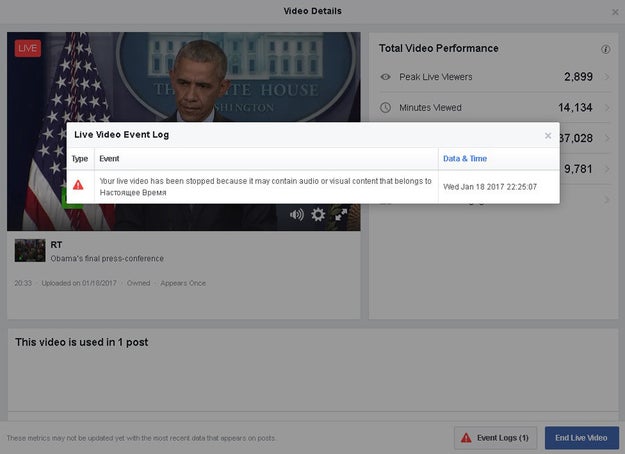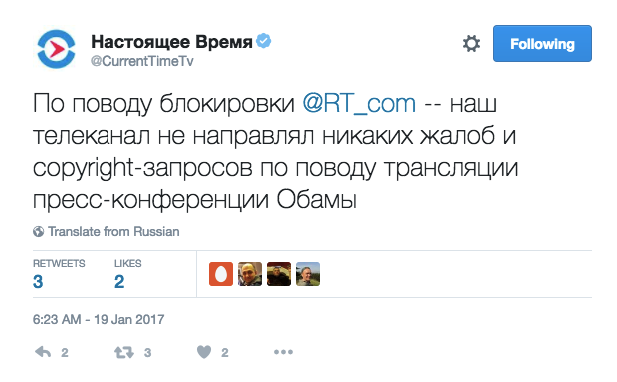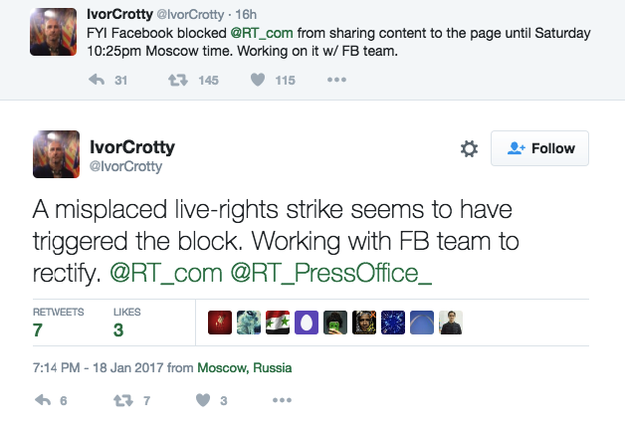[ad_1]
Facebook banned it from posting certain content for close to 24 hours, but the reason for the ban is now in dispute.
Russian media outlet RT was banned from posting videos, photos, and links to its main Facebook page for about 24 hours and no one — including Facebook — seems to know the exact reason why.

RT received a notification from Facebook on Wednesday afternoon while President Obama was giving his final press conference. The message said the live stream being broadcast on Facebook by RT was the subject of a copyright complaint from Current Time TV, a Russian-language channel. Current Time is operated by Radio Free Europe, a US government-funded media organization.
As a result of the complaint, RT was told by Facebook that it was banned from posting anything other than text to Facebook until Saturday.
RT reported on the ban and its editor in chief, Margarita Simonyan, told one Russian outlet she believed the ban was politically motivated. “If the Department of State could block oxygen to us, they would do it,” she said.
RT, which is funded by the Russian government, featured prominently in the recent declassified US intelligence report about alleged Russian intervention into the election. The report called RT the Kremlin's “principal international propaganda outlet.”
However, less than 24 hours after the ban was imposed, Facebook suddenly lifted it on Thursday.
A Facebook spokesperson said the company is “looking into the reasons behind the temporary block.”
Part of the confusion is that Current Time denies it reached out to Facebook about the supposedly-infringing livestream.
via RT / Via rt.com
“Current Time made no complaint to Facebook,” Daisy Sindelar, acting director of Current Time, told BuzzFeed News.

“Regarding the RT block — our channel did not direct any complaints or copyright inquiries regarding the live stream of Obama's press conference,” the outlet tweeted in Russian.
When asked for comment, RT directed BuzzFeed News to its article about the ban.
Twitter/@CurrentTimeTv
RT’s head of social media Ivor Crotty said on Twitter that the ban could have could have been the result of “a misplaced live-rights strike.”

Maria Zakharova, a spokesperson for Russia's Ministry of Foreign Affairs, addressed the ban in a briefing Thursday. “This problem is familiar,” she said in Russian, “it's especially pronounced towards Russia. Therefore, we need to get an explanation about what's going on from these organizations.”
Twitter/@IvorCrotty
[ad_2]
